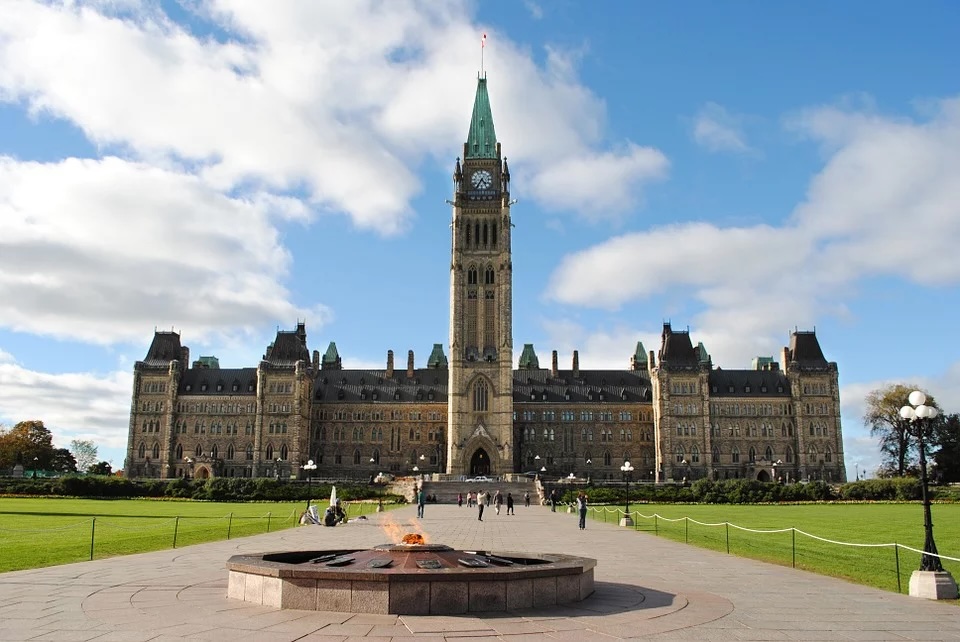By Leo Ryan, Editor
Amidst applause from union circles and strong criticism from Canadian business circles, the federal government’s bill banning replacement workers in the transportation, banking and telecommunications sectors is now up to the Senate to scrutinize after it was unanimously passed Monday on third reading in the House of Commons.
Bill C-58 amending the Canada Labour Code would restrict federally-regulated employers from using scab labour during strikes or lock-outs or face fines of $100,000 a day.
When Labour Minister Seamus O’Regan tabled Bill-58 last November, he hailed the initiative as “the biggest thing to happen to collective bargaining in Canada in decades.”
Perrin Beatty, President and CEO of the Canadian Chamber of Commerce, described the vote as “bad news for Canada, for Canadian families and for Canadian workers.”
“Last month,” Mr. Beatty noted, “new research showed us that Canada is losing more hours worked to striking workers than it lost at any point during pandemic restrictions. And the government’s own discussion paper on this issue acknowledged that banning replacement workers is likely to mean more frequent strikes and lockouts. This will exacerbate our productivity problem, further erode our global reputation, and keep us from simply getting things done.”
Mr. Beatty warned: “If this bill becomes law, the next time a strike shuts down rail or air travel, cell service or credit card payments, or port operations that keep products on shelves and fresh produce on grocery stores, the costs to all Canadians will be higher – all because of the politicians’ decision to put politics ahead of Canadians’ best interests.”
Countered Unifor National President Lana Payne: “This legislation is about protecting the right to fair and free collective bargaining, including the right to strike. Workers have fought for generations to get to this day, but there is still a final step.”
In welcoming the parliamentary vote, the Quebec entity of the Canadian Union of Public Employees (CUPE) recalled that the dock workers at the port of Quebec (CUPE 2614) have been locked out by maritime employers for more than 20 months while the union members of Videotron in Gatineau (CUPE 2815) have been locked out for 7 months.
“These two groups were spearheads in the fight to pass this anti-scab law. If the latter already existed, these people would not be on the streets. They have said it often and I repeat it again: they were not the first to suffer from the absence of this legislation, but let us hope that they will be the last! », said Frédéric Brisson, general secretary of CUPE in Quebec. “This new law will restore the balance between management and the union at the negotiating table. Quebec adopted an anti-scab law in 1977 and it is high time that employees under federal jurisdiction could benefit from such a law.”
Both British Columbia and Quebec have provincial anti-scab legislation to prevent employers from relying on anti-replacement workers during deadlocked collective bargaining negotiations.
The Liberal minority government of Prime Minister Trudeau, as part of its supply-and-confidence agreement with the New Democratic Party, had agreed to Bill C-58 as one of its priority pieces of legislation. Support of the opposition Conservative Party was, however, not a foregone conclusion.
How quickly the legislation proceeds through the Senate prior to eventual Royal Assent remains to be seen. However, the Trudeau government clearly hopes all in finished before Parliament closes for the summer recess.
Set to apply to an estimated one million employees, Bill C-58 is expected to take 12 months before actual implementation instead of originally-proposed 18 months following NDP insistence to speed up matters.
An important feature to underline: an exemption where replacement workers can perform the work of union members during work stoppages – but just in cases of perceived threats to health and safety or serious environmental or property damages than cannot be managed by the existing labour force.
(Photo of Canada’s Parliament Building)





